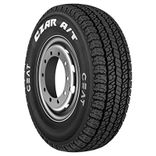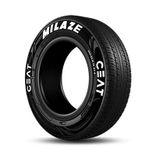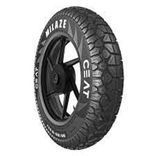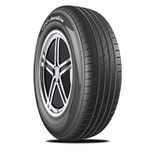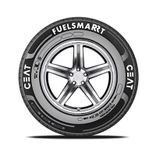Ad
Ad
Run Flat Tyres – Why Run-Flat Tyres/ Pros/ Cons- TyreCafe
Tyre puncture can be a nightmare, especially when driving in the outskirts of a city or on a hill station where there isn’t any garage nearby. Conventional tyres go flat as soon as they lose air and require be changing or repairing immediately. This causes serious safety concern having to stop at the roadside to change the wheel. With the recent advancement in automobile technology, tyre manufactures came up with run-flat tyres aiming to provide a concrete solution to all these concerns.
Tyre puncture can be a nightmare, especially when driving in the outskirts of a city or on a hill station where there isn’t any garage nearby. Conventional tyres go flat as soon as they lose air and require be changing or repairing immediately. This causes serious safety concern having to stop at the roadside to change the wheel. With the recent advancement in automobile technology, tyre manufactures came up with run-flat tyres aiming to provide a concrete solution to all these concerns.
What are Run Flat tyres?
Run-flat tyres enable the car to be driven a certain distance even after being punctured, not having to change it immediately or look for a mechanic. They are designed in such a manner that they maintain their shape and support the car even after being deflated. It’s not that it allows you to drive the car on punctured tyre forever, but to a limit of 50-80 Kms depending on the manufacturer and at a speed of 50mph. This is a good enough distance wherein you can either reach a safe place to change the tyre or find a garage. Tyre pressure monitoring system equipped in the car can alert the driver as the air pressure goes down slowly. With this one can know when the puncture happens.
Ad
Ad

Types of Run Flat tyres
Self-Supporting tyres:
Self-Supporting tyres have strengthened sidewalls which are hard and capable of supporting the vehicle in case of air loss. These reinforced sidewalls contain lightweight metallic ring which handles the weight of the vehicle. Unlike the conventional tyres, these tyres do not lose shape as they deflate and it is their sidewalls which ensure that the appropriate shape is maintained. This is the most commonly used run flat tyre technology used.
Self-Healing tyres:
Self-Healing Tyres have a thin liner of sealant under the tread which is capable of automatically sealing the puncture. As soon as the tyre is pierced by the needle, the sealant fills up the hole and minimises the loss of air pressure. It works efficiently if the puncture is up to 5 mm.
Advantages of Run Flat tyres:
- As the name suggests, the most obvious advantage is you can continue to drive on a flat tyre for a fair amount of distance.
- Minimises the risk of tyre blown out due to a sudden loss of pressure.
- One need not worry about carrying a spare tyre which provides more space to keep the luggage.
- Provides enhanced safety as you don’t need to stop the vehicle for changing the tyre on a dark night or on a lonely road.
Disadvantages:
- Due to reinforced sidewalls, the shock absorption capacity is not as good as conventional tyres resulting in a bumpy ride.
- Run flat tyres are heavier as compared to conventional tyres which result in more fuel consumption and poor average.
- These are more costly than conventional tyres.
- Are not often repaired and has to be replaced if damaged. A repaired run flat tyre doesn’t offer the same performance and durability.
Brands providing Run Flat tyre:
Almost all top tyre manufacturers have shifted their focus to providing run flat tyres. In fact, Bridgestone and Pirelli were the first to manufacture run flat tyres which were fitted in BME cars. They are available with different names at different brand stores.
- Bridgestone – Run-flat tyres (RFT)
- Good Year – Extended Mobility Tyre (EMT)
- Michelin – Zero Pressure Tyre (ZP)
- Dunlop – Dunlop Self Supporting Tyre (DSST)
- Continental – Self Supporting Run Flat (SSR)
Ad
Ad






